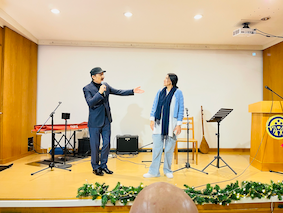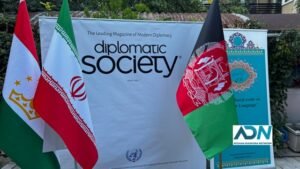Home in heart: An Afghan diaspora’s identity, belonging and resistance

Gul Badshah Kamawal, social and political activist based in Leeds, England. @private
Gul Badshah Kamawal grew up in Kama, a district in Afghanistan’s eastern Nangarhar province. But over two decades ago, insecurity and limited economic opportunities pushed him to make a life-changing decision: to leave.
It wasn’t easy—and his family initially opposed it—but Kamawal felt he had no choice.
“It was not possible for me to continue living there,” he recalls.
When he first arrived in Newcastle, UK, 24 years ago, he found himself alone—an Afghan in a city that had yet to welcome many of his fellow countrymen.
“There were no Afghans here then,” he explains, describing the loneliness and challenges of those early years.
But today, his moved from Newcastle to Leeds tells a different story. Leeds is now home to over 2,000 Afghan families—and Kamawal has played a key role in building that vibrant community.
Events like Afghan Independence Day have become important celebrations, helping Afghan diaspora communities stay connected to their heritage. Kamawal remembers organizing a large-scale celebration in 2019 with a smile and a hint of irony: British police were assigned to provide security.
“We told them, ‘We defeated you once, and now you protect us as we celebrate Afghanistan’s Independence Day from the British.’”
Voice, Memory, and the Digital Space
As life in exile evolved, so did Kamawal’s voice. He turned to digital platforms to share his thoughts and challenge political power structures.
“Everyone has a talent, but not everyone gets the opportunity to express it,” he says.
From his early days as a refugee in Peshawar—where he would speak to children—to his growing presence on social media, Kamawal found a powerful tool for change. For him, the digital world isn’t just a platform—it’s a democratic force that gives the voiceless a way to speak and holds the powerful to account.
But he doesn’t shy away from the darker side of it all. Rumors, misinformation, and personal attacks are part of the terrain.
“They want to suppress those who seek justice. But I don’t let it affect me,” he asserts.
In 2024, after six years away, Kamawal made an emotional trip back to Afghanistan. The country had changed dramatically. While he sensed a fragile peace, the scars of war and years of ideological control were still deeply visible. He met with Taliban officials, some of whom, he says, admitted privately that banning girls from school is neither just nor sustainable.
“When you take the pen from people, you take away their future,” he told them firmly.
He is openly critical of the Taliban’s symbolic erasures—such as removing the national flag, anthem, and constitution—seeing these as signs of a regime that fears diversity and merit.
“Afghanistan doesn’t need a mullahcracy,” he says. “We need Afghanocracy—something inclusive, representative, and rooted in the people.”
More Than a Game: Identity in Motion
Cricket holds a special place in Kamawal’s heart. A former player and lifelong fan, he has traveled the world—from London to Sydney to New Delhi—to cheer for Afghanistan’s national team. For him, cricket is more than a sport; it’s a peaceful celebration of Afghan pride and identity.
When some in the UK called for boycotts of the Afghan cricket team, Kamawal took a stand. He led a protest outside the UK Parliament and delivered a passionate speech.
“We gave them a strong response,” he says proudly.
Among Afghanistan’s public figures, one stands out to him above the rest—cricketer Rashid Khan.
“After Ahmad Shah Abdali and King Amanullah, Rashid Khan has done more than anyone to represent Afghanistan positively in the world,” he says.
Khan, now captain of Afghanistan’s T20I team, is celebrated not only at home but also abroad—especially in India, where Kamawal notes he’s loved even more than some local players. It’s a powerful reminder of how sport can transcend politics.
The Afghan national flag is another core symbol of Kamawal’s identity. He wears it with pride—on his chest, in his jewelry—and has told his family he wants it draped over his coffin.
“It is who I am,” he says simply.
For Kamawal, uniting Afghans—whether inside the country or across the diaspora—is far from impossible.
“Honesty is the key,” he believes.
He advocates for an inclusive national dialogue—like a grand Jirga—to bring legitimacy and renewed hope to Afghanistan.
“If the Taliban truly have power, they can bring unity. But without the people, no regime can survive—or be recognized.”
The full interview is available on the AND YouTube Channel.











